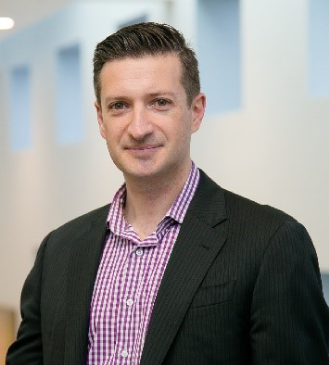
Paul Krawchuk
Global Director, Upstream Oil & Gas
Paul, a long-standing member of the Canadian Heavy Oil Association (CHOA) and the Society of Petroleum Engineers, has recently been appointed to the CHOA Board of Directors.
Paul has been with Hatch since 2011 and has over twenty years of experience in the oil and gas industry, with experience spanning across the upstream, midstream, and downstream segments. Paul is a subject matter expert in directional drilling, horizontal wells, and artificial lift. He has worked on multiple in-situ recovery and enhanced oil recovery projects with recovery methodologies that include vertical well flooding, horizontal well gravity drainage processes, and cyclic stimulation processes.
With his strong upstream background, he is perfectly aligned to be responsible for integrating our upstream offering. This offering ranges from oil sands to offshore and working closely with teams from Calgary, Dorking, Abu Dhabi, St. John’s, and Medellín.
What does positive change mean to you?
To me it means being part of projects that aim to make the world a better place. This has taken on a new meaning for me over the past several years, specifically with respect to the oil and gas industry and helping with the energy transition.
How are you changing the world?
One of the most exciting things that I have been working on recently is the deployment of commercial-scale carbon capture and other forms of decarbonization for our energy clients to help them meet their net-zero emissions commitments.
What do you think are the toughest challenges facing your clients?
I think that addressing climate change is by far the toughest challenge facing our clients in the energy industry. It is a tremendous first step that our clients are making commitments to reduce their emissions and have been setting aggressive targets like net-zero emissions by 2050 and significant reductions by 2030. For me, it’s very rewarding to be helping our clients begin their decarbonization journey. I believe that climate change is one of the most important issues we need to tackle as a society, and I want to be part of something that will set the planet on a better course for future generations.
"Positive change to me means being part of projects that aim to make the world a better place."
What are you most proud of?
The Nsolv Demonstration Project was by far the most rewarding project I’ve been fortunate enough to work on. To be involved in a first-of-its-kind project as the project manager from conceptual design through detailed design, fabrication, and construction was a great experience, and I was even more fortunate to lead the operation of the facility for several years as well. It’s not often that you get to see how your project decisions manifest in an operational setting. It’s a great learning experience.
More recently I was involved in the reclamation of the Nsolv site, including the replanting of trees and other species. In the past I have only been involved in building projects so getting to return a site back to nature was a unique experience for me.
What do you like most about working at Hatch? How do you think the Hatch culture is different from other companies?
This may sound funny, but earlier in my career I jumped a bit from company to company as projects I was working on wound down, and new, exciting projects came around. It’s different at Hatch; the exciting projects are brought to us non-stop by our clients. There is always something new and interesting to work on.
From a culture perspective, there is no doubt that Hatch is unlike any other company I’ve worked for. The first thing I noticed as I started to grow my network was that no matter what kind of skillset or experience I was looking for, we always seemed to have a subject matter expert in-house. While I’m no longer surprised by this, I do still believe that the thing that sets us apart is the way we strive to have deep technical expertise in all the areas in which we are active. Our clients know they can come to us when they have challenging problems they need to solve.